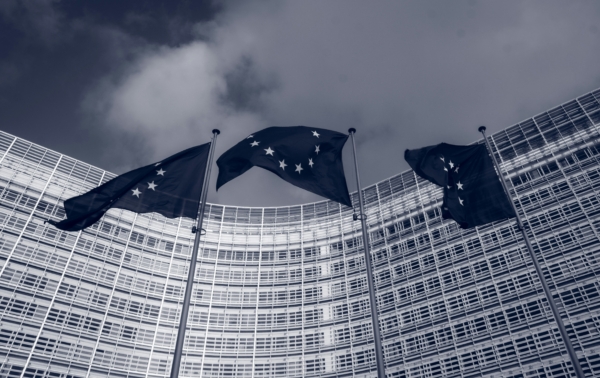On Wednesday the 29th of March, the European Commission approved two new private sector positions for the UK’s former Commissioner, Jonathan Hill. Announced during the media commotion around the UK’s formal BREXIT notification, the Commission continued its longstanding tradition of burying sensitive revolving door decisions. The approval follows the still unpublished advice of the Ethics Committee, the body in charge of assessing post-mandate activities of ex-Commissioners.
Previously in charge of financial services, Lord Jonathan Hill of Oareford, had initially voiced his intention to play an active role in the British Parliament. He will now take up new activities as Independent Director of the Times group of newspapers and as Senior Advisor for Freshfields Bruckhaus Deringer LLP. It is his appointment at Freshfields that demonstrates once more the strong demand for policy insiders in lobby organisations. The global law firm’s entry on the EU’s transparency register for lobbyists underlines its “track record in successfully supporting the world’s leading national and multinational firms, financial institutions and investors”. Precisely the type of organisations which Lord Hill was previously responsible for regulating.
This revolving door case highlights once again the urgent need for reform. As Transparency International EU’s recent report on the phenomenon shows, the current 18-months cooling-off period during which former Commissioners are barred from lobbying activities has proven insufficient. The ethics committee did provide certain conditions for clearing the new role. Lord Hill is to refrain from providing advice to Freshfields financial service and non-financial-service clients on matters related his former portfolio. He must also observe a ban on engaging in lobbying activities with the Commission, though it remains unclear what is defined as such. It is generally assumed that Mr. Hill cannot directly contact his former colleagues for lobbying purposes. Yet nothing in the three conditions rules out any strategic advice to his new employer on how to influence financial services regulation in Brussels. Just like Lord Hill’s predecessors who left for lucrative occupations, these limitations will cease after a mere 18-months from the date of his resignation.
This is particularly worrying as our report had shown the prevalence of the revolving door phenomenon among the 27 former Commissioners. More than 50% are now working for organisations on the lobby register, including high-profile companies such as Uber, ArcellorMittal, Goldman Sachs, Volkswagen and Bank of America Merrill Lynch. Many of these jobs include contacts with the EU institutions or manages EU relations. While Transparency International EU does not dispute the fundamental right to freely choose an occupation, it must be reconciled with the public need to prevent conflicts of interest. This should entail longer cooling-off periods and, more importantly, an independent oversight body with appropriate resources.
Until now, the three hand-picked members of the ethics committee have absolved all former Commissioners, feeding the perception of a conflict of interest for those tasked with preventing them in the first place. This is in stark contrast with the French Authority for Transparency in Public Life (HATPV), established in 2014 to promote transparency and integrity among public office holders. With a full-time staff of 40 and a budget of €6 million, the independent HATPV has all the resources to investigate potential breaches to the law as well as the power to sanction accordingly. Solid revolving door provisions makes France well-prepared to face an unprecedented wave of renewals as a third of MP’s are expected to leave the National Assembly after the 2017 elections.
Transparency International EU does commend the Commission for recently proposing the extension of cooling-off periods for Commissioners to two years and to three years for the President. In Canada for instance, the highest-ranking officials must follow a 5-year explicit ban on lobbying. The decision is nevertheless a step in the right direction and brings the Commission’s cooling-off periods closer to international best practices. But just as our research had shown, both the European Parliament and the Commission currently lack the kind of independent oversight system that could properly enforce post-employment obligations.
With a little over two years left until the 2019 European elections, the window for opportunity is closing fast before the next round of Commissioners and MEPs re-enter the job market. From ex-President Barrosso joining the US investment bank Goldman Sachs to former Commissioner for Trade Karel De Grucht becoming director of the world’s largest steel producer ArcelorMittal, the series of high-profile cases that hit the current Commission could’ve been averted. To paraphrase Jonathan Hill’s resignation speech “what is done cannot be undone”, echoing our warning that ethics scandals can cause irreversible damage to the EU’s reputation. Transparency International EU urges to take action on the revolving door phenomenon to safeguard the integrity of the EU institutions.







